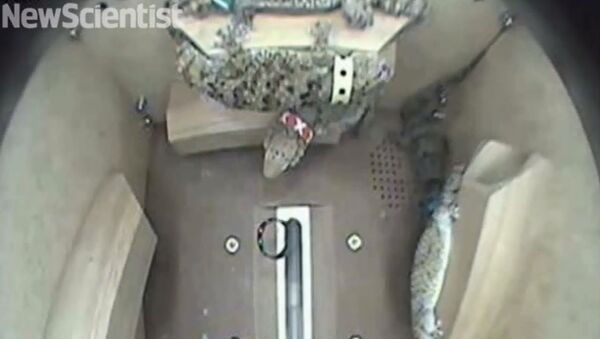Fifteen female thick-toed geckos were sent to space in April 2013, as part of a Russian study aimed at examining gecko behavior. Female geckos were picked over males, because the latter tend to be extremely aggressive with each other. The reptiles were left in orbit on a 30-day unmanned mission and the results, slight as they may be, revealed a very interesting new finding about geckos: specifically, that they are capable of having fun.
During takeoff, one gecko wriggled free of its identification collar, leaving the collar to float around the enclosure freely. At first, the geckos, which don’t float in space due to their sticky feet, were careful to stay away from the object. With time, however, some began nudging it playfully.
While it may not seem like a lot, the simple move could overturn our understanding of reptiles as animals that are incapable of engaging in play.
The Research Institute of Human Morphology in Russia released the findings in its report: "Reptiles have quite a complex brain structure and rather well developed cognitive and perceptual abilities, but until recently, they were considered unable to demonstrate play behavior."
University of Tennessee herpetologist Gordon Bughardt, who was not part of the study, said that the experiment showed "the first demonstration of object play in geckos — something that is rare in lizards."
Burghardt argues that reptiles don't engage in play because they are more preoccuppied with fending for themselves from birth and, since they are cold-blooded, have little surplus energy left for other activities. He subsequently predicted that reptiles would be more inclined to partake in play in environments in which they need to burn less energy, which would explain the playful geckos in space.


